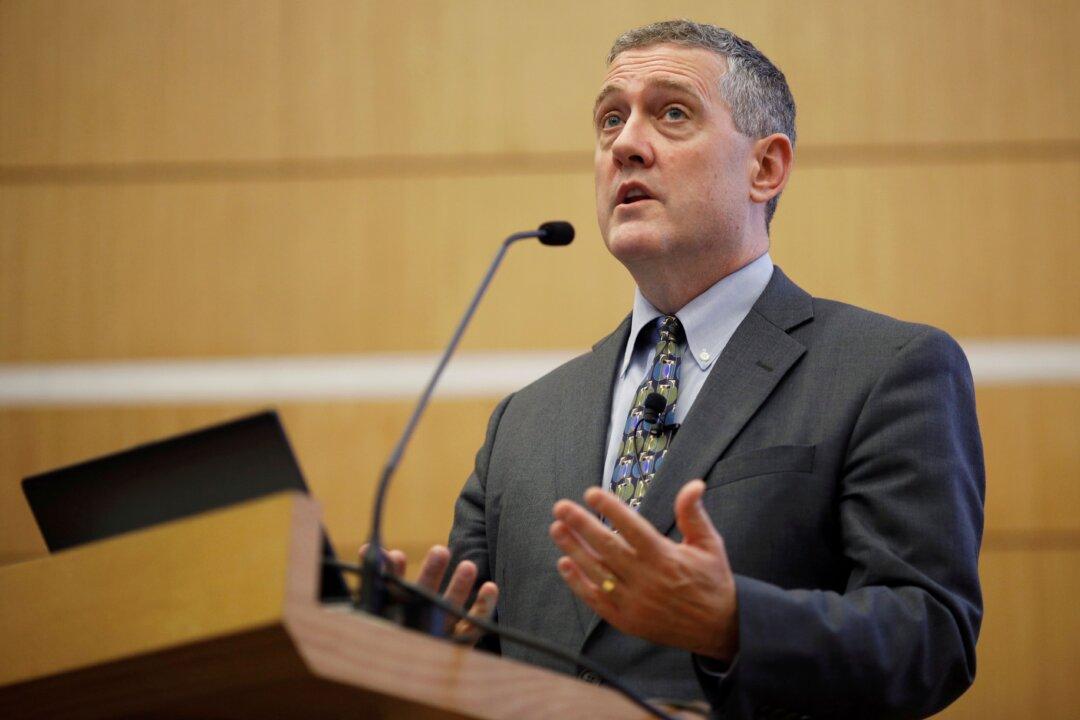CHICAGO—An interest rate cut “may be warranted soon” given the rising risk to economic growth posed by global trade tensions as well as weak U.S. inflation, St. Louis Federal Reserve President James Bullard said on June 3, the first Fed official to say recent events may require a central bank response.
Bullard said the Fed cannot react to every shift in the rapidly evolving trade feud between the United States and other top trading nations. However, he said, developments like the unexpected announcement of new tariffs on Mexican imports have created “an environment of elevated uncertainty ... that could feed back to U.S. macroeconomic performance” as the global economy slows.





